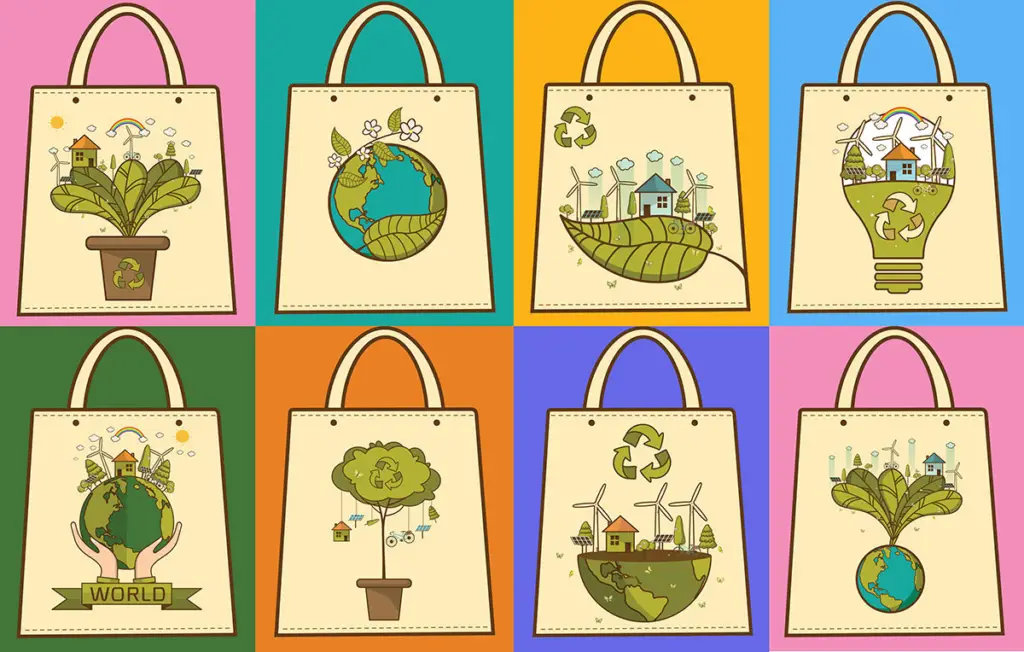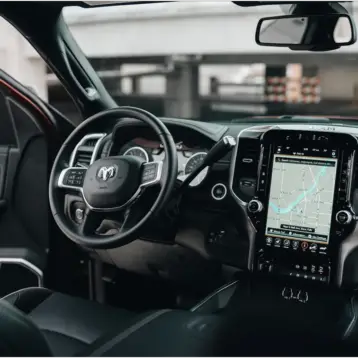
CEOS nowadays have to consider sustainability in most aspects of their business, from products to packaging. It makes sense from a financial perspective because there can be government incentives to use green electricity and it appeals to new customers, given that a lot of millennial and Gen Z consumers take the environment into account when shopping.
We’re not equipped to advise anyone on green government grants or where to source their products, but we do know a fair bit about bags and which type is better for the environment. We’ll go into more detail below but *spoiler alert* it all depends on how your customers use them.
Plastic Bags
These are fairly ubiquitous in stores across Europe, unless you go to a zero-waste store or the eco-cosmetics chain Lush, because plastic bags arre cheap to manufacture and give away.
Studies have also shown that, on average, plastic bags cause less environmental damage during production than paper or cotton. The problem is that data is only effective if the bags are used at least twice, once as a bin bag replacement, or recycled. Most plastic bags can be used a few times, but people aren’t doing that.
Instead, bags would be binned because they were difficult to recycle. In most instances, customers would have to bring them back to the store. They’re not always easy to recycle even at the recycling plant, as they can get stuck in machinery and the profit margin is thin.
The plastic litter caused creates a big problem because it won’t biodegrade for 500 years. Not only can plastic leech chemicals into the soil and air when in a landfill or burnt for fuel, but it can also harm wildlife and/or marine life that get caught in the bag or eat it.
This poses problems for humans because microplastics have been found in water, most foods, the soil, and the air. We don’t yet know what the long-term impact of this is on the planet or for humans specifically, but scientists are concerned. Due to all of these issues, laws to reduce or prevent their use have been enacted in the UK and EU.
Paper Bags
Paper bags are preferred by many sustainable shops because they’re easy for the consumer to dispose of in an eco-friendly way after use. Just pop it in the kerbside recycling or compost bin and the job is done. This makes sense because, as we’ve seen, many people don’t reuse their bags.
However, the problem is that paper bags take about four times more energy to create than plastic ones, without even taking into account how the chemicals and fertilizers used to grow trees harm the environment. To counter this, bags would have to be used three to 43 times, which would be hard because they’re often the least reusable option.
Reusable Bags
It’s hard to calculate the environmental impact of a reusable bag’s production because it can be made from any number of materials. However, on average, a cotton bag would need to be used 131 times to have a production footprint comparable to a regular plastic bag, while durable plastic ones would need to be used 11 times. This shouldn’t be a big problem because they’re designed to last at least that long, but customers do have to remember to bring them and that can be a struggle.
However, the great thing about reusable bags is that litter is dramatically reduced. They are designed to be reused for years or decades and can be given to other people if you no longer need them. Even when the bag is damaged, many stores will take back the thick plastic ones for recycling and replace them for free, while cotton ones can be repaired, repurposed, and eventually composted. (If you’re interested in getting some printed bags for your customers, see the options available at https://www.pens.com/uk/c/bags.)
Exploring Eco-Friendly Business Options
Switching from plastic bags to a more sustainable option isn’t the only way to make the shopping experience more green. There are many different eco-friendly ideas for making business practices more eco-friendly. However, looking into bag options for your customers is a good place to start.
In summary, the most eco-friendly bag will depend on your customers’ habits, so you could conduct a poll to find this out. Reusing is always the best choice, but if that’s not an option, i.e. if you’re doing grocery deliveries, then paper ones might be a smart choice to prevent litter and the immediate damage to the local environment.










